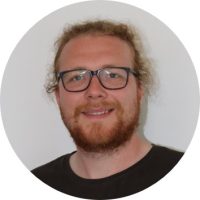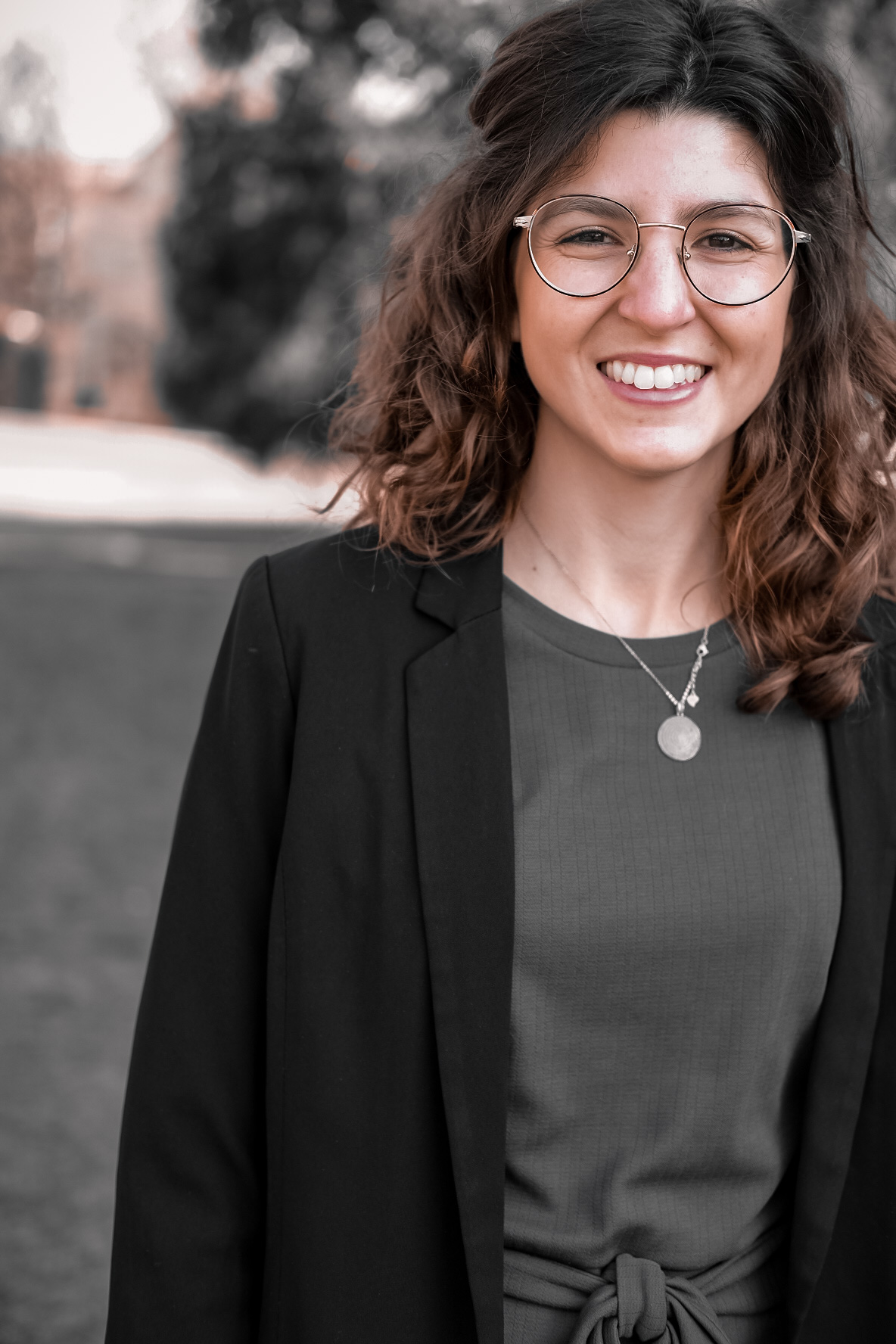
Xintong Chen
PhD candidate since 2024
Nationality: Chinese
Web: https://www.plus.ac.at/biowissenschaften/der- fachbereich/arbeitsgruppen/ag-himly/
Supervisor/secondary supervisor: Martin Himly
Research interest: Allergy and Nanomedicine
Orcid: 0000-0002-9854-2582
Title of thesis: Effect of 2′-FL glycosylation modification on bovine milk protein allergenicity and intestinal microecology
Describe your project: My project systematically investigates whether the glycosylation of 2′-fucosyllactose (2′-FL) can reduce the allergenicity of milk proteins.Firstly, we prepared three kinds of glycosylated proteins and identified the binding sites, then performed structural characterisation, caco-2 transit model and in vitro binding capacity measurement to character the changes in the properties of glycosylated protein. after that, we used the mice allergy model to comprehensively investigate the in vivo allergenicity.
Describe your background: I studied nutrition and food hygiene at Fujian Agriculture and Forestry University for my bachelor’s degree in 2021. I then enrolled at Nanchang University, for my Master’s degree in June 2024. I published three first-author papers in Food science, Food Hydrocolloids and Food Chemistry. I have hands-on experience with protein purification, ELISA, CD spectra, and animal models of food allergies. My current project, funded by the CSC Program aims to study GI viruses. In my free time, I am fascinated by virus-host interactions and designing next-generation antiviral strategies that might one day outsmart pathogens.
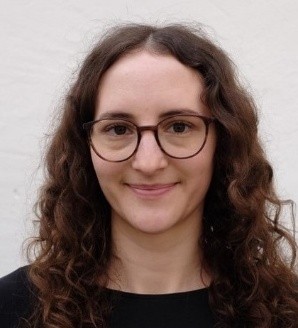
Anna Dlugosch
PhD Student since February 2025
Nationality: German
Web: https://www.plus.ac.at?page_id=10411
Supervisor/secondary supervisor: Prof. Nicole Meisner-Kober and Dr. Melanie Schürz
Research interest: Extracellular Vesicles, Precision Nanomedicine, Drug Delivery Systems
Title of thesis: Subcellular trafficking and intracellular rate limiting steps of nanovesicular drug delivery vehicles
Describe your project: My PhD research is conducted in close collaboration with the European Rare Disease Research Alliance (ERDERA), an EU-funded initiative dedicated to advancing the diagnosis and treatment of rare diseases. The project is part of a work package focused on the development of novel mRNA and gene editing therapies by advanced drug delivery strategies including extracellular vesicles, next generation lipid nanoparticles and biohybrids. One of the major challenges is still to overcome the extra- and intracellular barriers that hinder efficient intracellular cargo delivery by these nanoparticles. To address this, my research aims to enhance our mechanistic understanding of endosomal escape and intracellular cargo release. Specifically, I will investigate the subcellular trafficking and localization of vesicular components using advanced cell fractionation techniques, focused genetic / pharmacological screens and molecular imaging. By comparing the intracellular pathways of naturally derived vesicles and synthetic nanoparticles, I aim to identify key factors that influence delivery efficiency and therapeutic potential.
Describe your background: I completed both my Bachelor’s and Master’s degree in Biology at the University of Regensburg, with a focus on Molecular Human Biology, Genetics and Biochemistry. For my master’s thesis, I investigated the role of caveolae in optic nerve head astrocytes in the context of glaucomatous diseases.
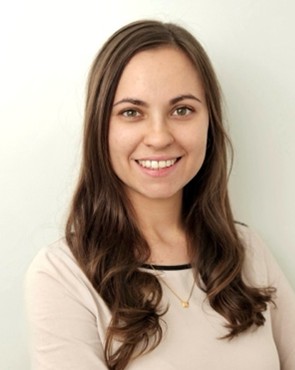
Laura Ebner
PhD Student since October 2024
Nationality: Austrian
Web: https://salk.at/campus-lkh/expertise-zentrum-fuer-stoffwechsel-stoerungen
Supervisor/secondary supervisor: Assoz. Prof. Mark Rinnerthaler and PD Dr. Johannes A. Mayr
Research interest: Metabolic disorders and rare genetic disease
Orcid: 0009-0004-7988-0975
Title of thesis: Direct, long-read sequencing as a tool for diagnosis, characterisation and treatment of rare genetic diseases
Describe your project: Direct, long-read sequencing by Oxford Nanopore Technologies enables novel insights into the human genome and rare genetic conditions caused by structural variants, repeat expansions, splice-altering variants or aberrant epigenetic modification. These variants were previously often missed using short-read sequencing or identification was tedious. In my project I aim to characterize novel genetic variants in affected individuals using direct, long-read sequencing of RNA. I aim to establish and apply protocols for direct sequencing of mRNA, pre-mRNA, rRNA and tRNAs to characterize novel variants leading to splice defects or aberrant RNA modification in affected individuals.
Describe your background: I studied Medical Biology at the University of Salzburg and I am now a PhD Student at the University Children’s Hospital, Salzburger Landeskliniken (SALK) working on diagnosis, characterization, and treatment of rare genetic diseases and metabolic disorders. My most recent projects involve the application of Oxford Nanopore sequencing technology to identify novel candidate genes and characterize novel variants with a special focus on RNA metabolism.
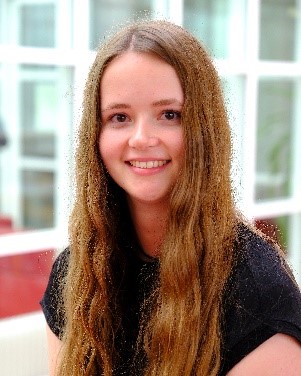
Julia Feiser
PhD student since September 2024
Nationality: Austrian
Web: https://www.plus.ac.at?page_id=10334
Supervisor/secondary supervisor: Prof. Iris Gratz
Research interest: Skin immunology
Title of thesis: CD4+ T cell-mediated epigenetic reprogramming of skin structural cells in inflammatory skin disease
My project: My research examines how T cells interact with skin structural cells, driving transcriptional and epigenetic changes that shape their behavior during and after inflammation. By using cell culture systems, animal models, and patient samples, we aim to uncover mechanisms of inflammatory memory in skin diseases like psoriasis and atopic dermatitis. This will pave the way for new therapeutic strategies to combat chronic skin inflammation.
My background. I earned both my bachelor’s and master’s degree in molecular biology, a joint program between the University of Salzburg and the JKU Linz. For my master’s thesis, which I completed in the group of Iris Gratz, I focused on gamma delta T cells in the tumor microenvironment. Afterwards, I was able to start my PhD studies in the same group, studying inflammatory memory in skin diseases.
In my private life, I am involved in my local folk dance group (“Schuhplattler”) where I function as a chair.
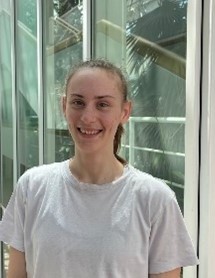
Birgit Halwachs
PhD student since 2025
Nationality: Austrian
Web: https://www.plus.ac.at?page_id=265642
Supervisor/secondary supervisor: Prof. Dirk Schmidt-Arras
Research interest: Tumor Immunology
Title of thesis: The role of the IL-6/SAA axis in tumorigenesis
My project The liver is not only a metabolic hub of the human body but also a central immunological organ. At high circulating levels of IL-6, hepatocytes massively increase the secretion of certain plasma proteins such as C-reactive protein (CRP) or serum amyloid A (SAA). This so-called acute phase response plays a crucial role in controlling systemic inflammation following barrier damage or bacterial infection, but is also frequently hijacked by cancer. Increased secretion of SAA by hepatocytes has been associated with reduced immune surveillance in pancreatic cancer and the establishment of a pre-metastatic niche in the liver. Using a novel mouse model that mimics a strong acute phase response and hence a pre-metastatic niche in the liver, we aim to investigate the role of this IL-6/SAA axis in the immune surveillance of primary cancer and liver metastasis. Thereby, we are particularly interested in understanding how the acute phase response skews the immune system to a tolerogenic pro-tumorigenic phenotype.
My background. I studied Medical Biology at the Paris-Lodron University of Salzburg where I completed my studies with a master’s degree in 2024. During my master’s thesis, I already focused on understanding the formation of a pre-metastatic niche in the liver. In my free time, I like being upside down doing wheelgymnastics or reading a good book.
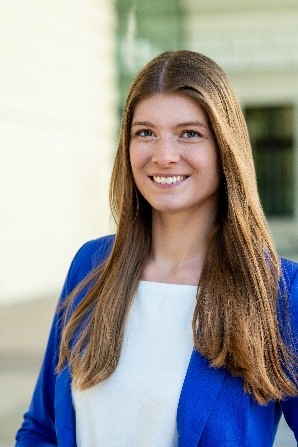
Anna Höll
PhD student since October 2024
Nationality: Austrian
Web: https://www.plus.ac.at?page_id=10249
Supervisor/secondary supervisor: Prof. Hans Brandstetter and Dr. Sven O. Dahms
Research interest: Structural Biology
Orcid: https://orcid.org/0009-0000-8102-6138
Title of thesis: Identification, development and characterization of specific PC7-inhibitors
My project: Proprotein convertase 7 (PC7) is the most ancestral and yet the least investigated member of the furin-like proprotein convertase (PC) family. PC7 mediates the maturation of several disease-associated substrates and is hence an interesting target to treat certain cancer types, infections, anxiety or cardiovascular diseases. Within my project I aim to investigate the activation mechanism of PC7 and furthermore resolve the structure of the enzyme with and without inhibitors using X-ray crystallography. These structures could further guide in-silico based approaches to identify novel PC7-inhibiting scaffolds.
My background: I studied Pharmaceutical Sciences at the University of Graz and earned my master’s degree in 2023. The following year I completed my one-year training as a pharmacist in Golling, Salzburg. In October 2024 I joined the Brandstetter group to study proprotein convertase 7 for my PhD thesis. In my free time you will find me most likely in the mountains around Salzburg.
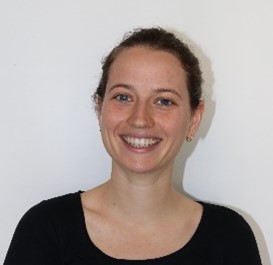
Philine Hoven
PhD student since 2022
Nationality: German
Web: https://www.limcr.at/fg-geisberger/
Supervisor/secondary supervisor: Dr. Roland Geisberger and Prof. Nikolaus Fortelny
Research interest: Genomic aberrations in cancer
Title of thesis: Investigating genetic changes caused by mutant SAMHD1
My project: My research focuses on genomic aberrations in cancer cells, with a particular emphasis on Templated Sequence Insertions (TSIs). These insertions occur as a consequence of DNA damage repair processes and can contribute to the genomic diversification observed in cancer. Understanding the mechanisms behind TSIs is crucial for uncovering cancer related DNA repair pathways and may reveal one aspect of cancer neoantigen formation.
My background: I began my academic journey in 2017, studying biology at the University of Innsbruck. I then pursued my Master’s degree in Medical Biology at the University of Salzburg, where I conducted my thesis research in the laboratory of Dr. Roland Geisberger. My work on this project sparked a deep interest in cancer genomics, leading me to continue my research for my PhD, which I began in 2022.
In my private life, I love to spend time in the beautiful mountains around Salzburg.
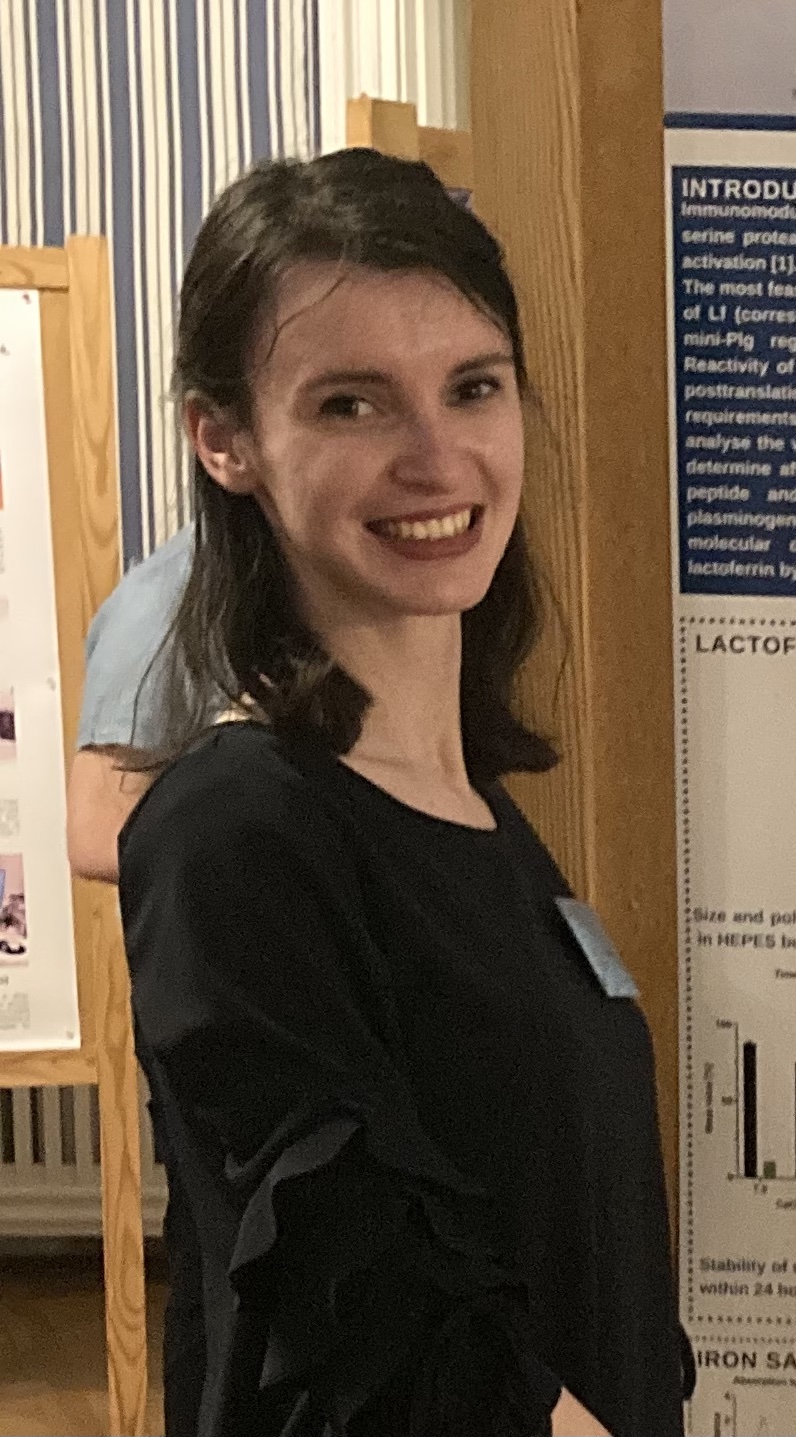
Patricia Hrasnova
PhD student since September 01, 2024
Nationality: Slovak
Web: https://www.plus.ac.at?page_id=10411
Supervisor/secondary supervisor: Prof. Dr. Nicole Meisner-Kober
Research interest: Extracellular vesicles, RNA biology, Drug delivery, Biological therapeutics
Title of thesis: The therapeutic potential of human-milk-derived extracellular vesicles in pediatric and neonatal gastrointestinal diseases and the respective molecular mechanism of their function
My project: The project is embedded within a larger scientific effort directed at translating the basic biology of extracellular vesicles into therapeutic applications and carried out in close collaboration between the Paris Lodron University of Salzburg, the Paracelsus Medical University Salzburg and the Salzburg University Hospital, Department of Pediatrics. We aim to investigate the immunomodulatory and tissue regenerative activity of human milk-derived extracellular vesicles on the gastrointestinal tract to develop potential therapies for neonatal diseases.
My background: Patricia studied Cell and Molecular Biology at Palacky University in Olomouc, Czech Republic, working on enzymatic pathways and their use for therapeutic applications for neurological diseases aimed at further drug design and HTS. She conducted her master’s at Comenius University in Bratislava, Slovakia, where she studied direct protein-protein interactions of human milk proteins and derived peptides.

Daniel Katzlberger
PhD candidate since March 2025
Nationality: Austria
Web: https://www.plus.ac.at/fortelny
Supervisor/secondary supervisor: Prof. Dr. Nikolaus Fortelny
Research interest: Cross-ancestry, Omics-research, biostatistics, and ML/AI
Title of thesis: Computational frameworks to assess the generalizability of genotype-phenotype relationships across genetic ancestries
My project: Ancestry biases are a major challenge in current biological and medical research, with individuals of European ancestry strongly overrepresented in clinical trials, genomic studies, and other omics research. This imbalance limits the generalizability of findings across divers ancestry groups. While current efforts in this field primarily focus on genomics, we aim to extend this research to multi-omics, including transcriptomics, proteomics, and epigenomics. The small sample sizes available for these ancestries often restrict the strength and scope of conclusions that can be drawn. In my PhD research, I aim to address this limitation by developing methods and frameworks that can better evaluate genotype-phenotype relationships across diverse ancestries, even with limited data.
My background: I hold a bachelor’s and a master’s degree in molecular biology, with a focus on bioinformatics. During my masters, I got introduced to bioinformatics in the lab of Nikolaus Fortelny. I focused my thesis on developing bioinformatic methods to validate the generalizability of results generated by mainly European-ancestry data. For my PhD, I aim to continue building on this foundation by integrating advanced bioinformatic tools to investigate the molecular mechanisms underlying complex traits and diseases. In my private life, I am interested in sports like running and hiking.
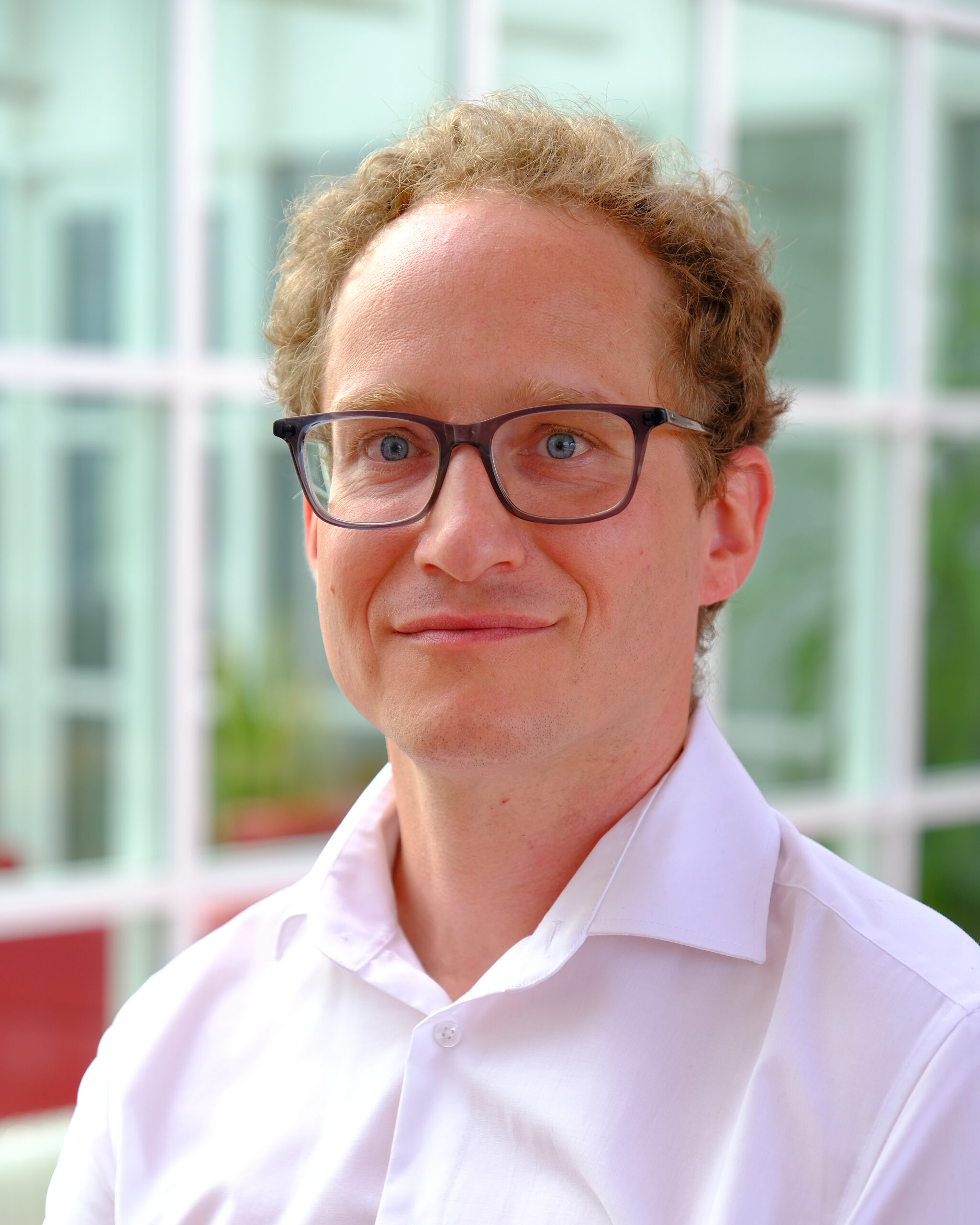
Rupert Klaushofer
PhD student since 2023
Nationality: Austria
Web: https://www.plus.ac.at/dall/
Supervisor/secondary supervisor: Dr. Elfriede Dall and Prof. Hans Brandstetter
Research interest: Structural Biology
Title of thesis: Characterization of the ligase activity of human legumain
My project: Human Legumain shows protease as well as ligase activity, both activities superposing each other with opposing pH profiles. The disease related localization of legumain in compartments with near neutral pH raises questions about the stability and the role of the ligase activity in diseases. Within my project I aim to investigate the substrate specificity of legumain’s ligase activity and develop a FRET-based real-time ligase assay. Furthermore, I aim to characterize the interaction of legumain with its known cytosolic binding partner TRAF6, especially with regard to its effect on legumain’s stability and activity.
My background: I studied molecular biology at the Paris Lodron University of Salzburg and the Johannes Kepler University of Linz and completed my studies with a master’s thesis in the group of Hans Brandstetter at the Paris Lodron University of Salzburg in 2023. Afterwards, I started my PhD thesis in the START Group Dall at the Paris Lodron University of Salzburg focusing on the characterization of the ligase activity of human legumain.
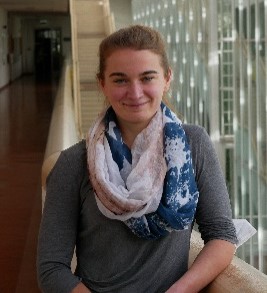
Freia Krause
PhD student since 2021
Nationality: German
Web: https://www.plus.ac.at?page_id=265642
Supervisor/secondary supervisor: Prof. Dirk Schmidt-Arras and Prof. Iris Gratz
Research interest: Liver Inflammation and Cancer
Orcid: https://orcid.org/0000-0001-8546-5859
Title of thesis: Consequences of IL-6 mediated inflammation on the hepatic immune microenvironment
My project We use a genetically modified mouse model to induce sterile inflammation of the liver with concomitant acute phase response. We try to understand how and in which degree liver inflammation and acute phase proteins modulate the liver immune microenvironment potentially affecting primary cancer growth, metastasis and peripheral tumor surveillance.
My background. I studied “Biochemistry and Molecular Biology” at the Christian-Albrechts University of Kiel. I completed my studies with my master’s thesis in 2021 in the Kiel Version of the Schmidt-Arras lab. I accepted the offer to start my PhD in the Schmidt-Arras lab in Salzburg because I was curious to live in this beautiful city and exchange the Baltic Sea with mountains for some years.
In my private life I love spending time with my partner, have little fights with my always hungry cat and spent money on shrimp tanks or sport accessories.
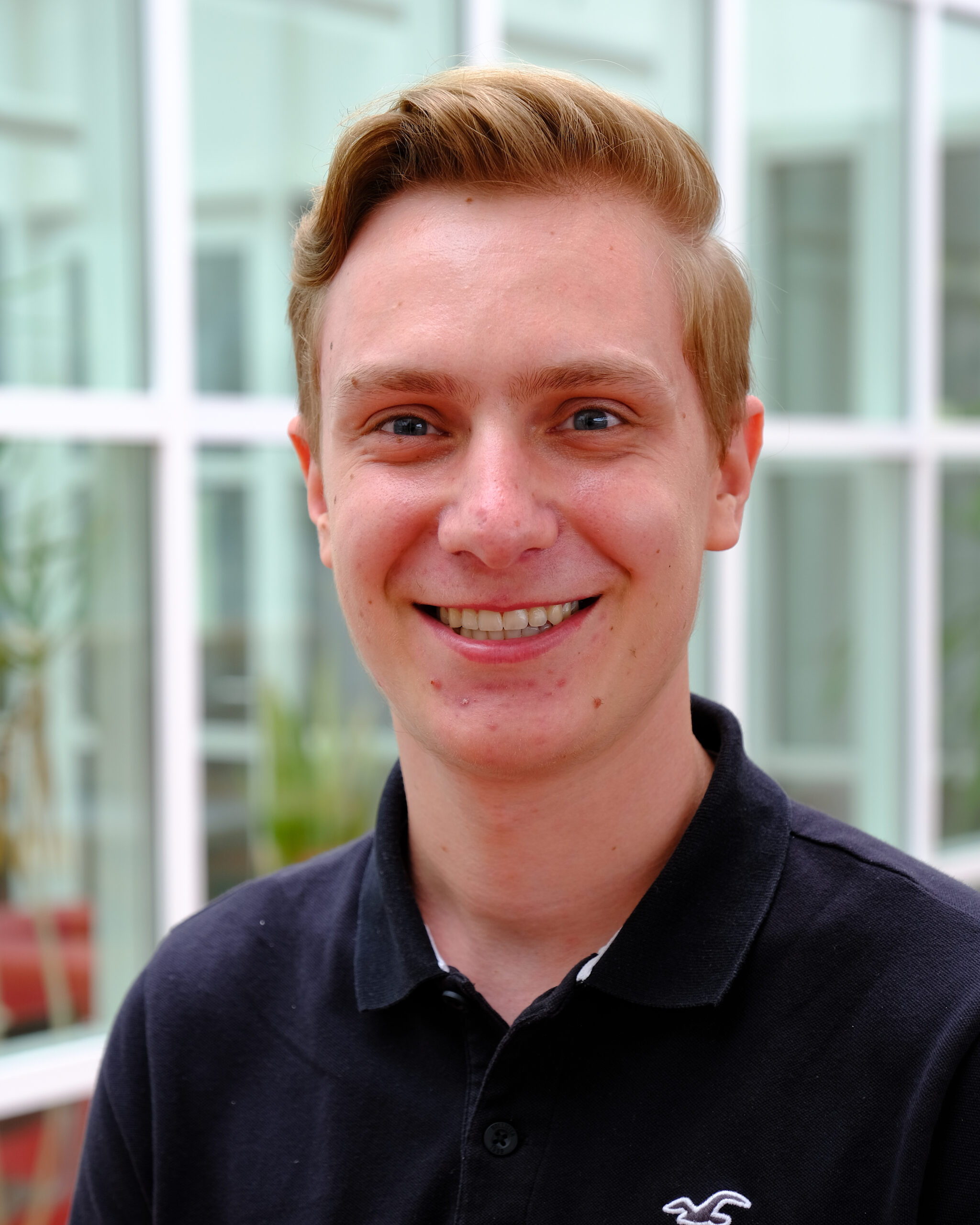
Daniel Lankes
PhD student since 2024
Nationality: Germany
Web: https://www.plus.ac.at?page_id=10224
Supervisor/secondary supervisor: Prof. Fritz Aberger and Dr. Peter Krenn
Research interest: Cancer and Stem Cell Biology
Title of thesis: Targeting integrin activation and signaling to eradicate leukemic stem cell persistence in myeloproliferative neoplasms
My PhD project: Current treatment options for myeloproliferative neoplasms (MPNs), including the JAK1/2 inhibitor ruxolitinib, often encounter resistance in patients. Given the critical role of the crosstalk between leukemic stem cells and their microenvironment in leukemia establishment and progression, we hypothesize that disrupting this interaction could mitigate treatment resistance in MPNs.
My background: I completed my joint-degree (PLUS/JKU Linz) bachelor’s program “Molecular Biosciences” in 2020 after which I enrolled in the master’s program “Medical Biology” at the PLUS. Following the completion of my master’s degree in 2023, I worked as a lab scientist in Fritz Aberger’s lab at the PLUS before starting my PhD studies in the same group in 2024.
In my private life, I am passionate about staying active through various sports and enjoy spending time with friends.
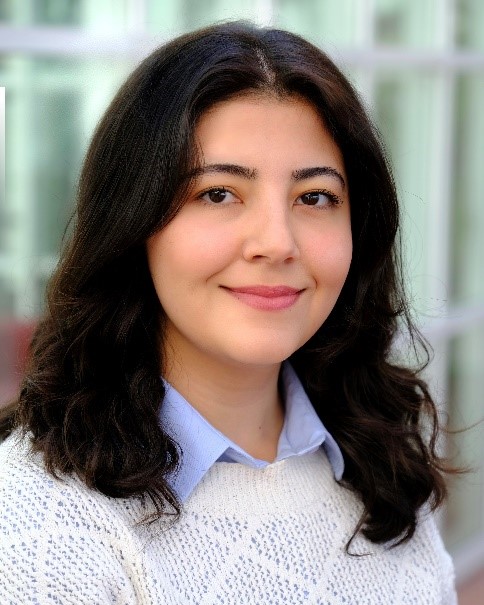
Elif Öztemiz Topcu
PhD student since May 01, 2023
Nationality: Turkey
Web: https://www.plus.ac.at?page_id=579914
Supervisor/secondary supervisor: Dr. Gabriele Gadermaier and Prof. Martin Himly
Research interest: molecular allergology, food allergy, in vitro assay development
Orcid: https://orcid.org/0000-0001-8002-7921
Title of thesis: Endolysosomal Degradation Assay to Determine Food Allergen Stability and Antigenicity
My project My PhD project within the ALLPreT (Allergenicity Prediction Toolbox for Novel Foods) EU-project focuses on standardization of an in vitro endolysosomal degradation assay to link protein stability during degradation to antigenicity and predict T cell epitopes. This project utilizes legume proteins and extracts from highly allergenic to low/no allergenic sources as reference set. Identified patterns across these different sources will be correlated with allergic sensitization, thus contributing to safety assessments for the introduction of novel food sources in the future.
My background. I hold a Bachelor’s Degree in Molecular Biology and Genetics from Istanbul University, Turkey (2019) and a Master’s Degree in Biotechnology from Yeditepe University, Turkey (2022). During my Master’s studies, I focused on cardiovascular research In my work, I explored the targeted delivery and controlled release of atorvastatin using aptamer-gated nanoparticles in a pre-atherosclerotic cell culture model. In another project, I investigated the effects of caloric restriction on transglutaminase-2 epigenetic regulation in aging mice aorta.
In my private life, I’m interested in specialty coffee (probably like almost half of all PhD candidates in the world), along with healthy food, traveling, plants, and nature.
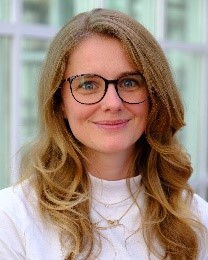
Tanja Plank
PhD student since May 01, 2023
Nationality: Austria
Web: https://www.plus.ac.at?lang=en&page_id=10412
Supervisor/secondary supervisor: Prof. Nicole Meisner-Kober and Dr. Éric Boilard
Research interest: Extracellular vesicles and drug delivery
Orcid: https://orcid.org/0009-0006-5202-9448
Title of thesis: Trafficking of extracellular vesicles across epithelial barriers: mechanisms and implications for therapeutic drug delivery
My PhD project: My PhD project aims to investigate the mechanisms by which extracellular vesicles (EVs) cross epithelial barriers, with a particular focus on their implications for the development of EV therapeutics. By quantitatively dissecting the biodistribution of biomedically relevant EVs from different sources, I aim to identify both common and unique patterns and to generate an atlas of EV tropism from the whole organ to the cellular level. I will then zoom into the molecular mechanisms involved in the tissue penetration and in particular overcoming of epithelial barriers. To achieve this, a key component of my research is to establish different in vitro models for epithelial barriers including the blood-brain-barrier, gastrointestinal as well as lung epithelial barriers. These models will then be applied to systematically investigate the interactions between extracellular vesicles and epithelial tissues, in order to identify involved receptors and trafficking pathways by focused genetic screens as well as investigation of selected candidate receptors, such as the neonatal Fc receptor. Candidates identified in vitro will then be validated in vivo in mouse models using either transgenic or (conditional) knockout animals and/or pharmacological interference as available.
My background: I completed my Bachelor’s and Master’ s degrees in Biology with a focus on Medical Biology at the Paris Lodron University of Salzburg in 2023. My Master’ s thesis in the immunologic principles of allergic reactions laid the foundation for my strong interest in scientific research. This interest deepened during the three years as a research assistant in the lab of Univ.-Prof. Nicole Meisner-Kober, where colleagues and I focused on oral drug delivery of milk derived extracellular vesicles in a scientific collaboration with EvoBiotiX SA and Boehringer Ingelheim.
In my personal life, I enjoy sports such as horseback riding and hiking I also love traveling and am a very outgoing person who enjoys connecting with people from around the world. Since June 2021, I have been volunteering as a paramedic at the ‘Rotes Kreuz’ in Salzburg, an experience that is very meaningful and enriching to me.
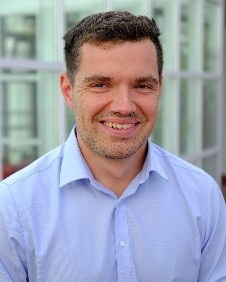
Benjamin Punz
PhD student since March 01, 2022
Nationality: Austrian
Web: https://www.plus.ac.at?page_id=579908
Supervisor/secondary supervisor: Prof. Martin Himly and Prof. Maurizio Musso
Research interest: Nanomedicine
Orcid: https://orcid.org/0000-0001-9662-4739
Title of thesis: Functional assessment of SMART antimicrobial surfaces
My project The contamination of work surfaces, medical equipment and devices poses significant risk to exposed individuals, in specific, those at compromised health, contributing to over 13.7 million worldwide deaths caused by infectious diseases in 2019. It is imperative to explore alternative approaches to combat the increasing resistance to commonly used broad-spectrum antibiotics. Certain nanoparticles are already widely used in various commercial applications, notably materials based on silver (Ag). However, the growing prevalence and oversaturation of Ag in the environment raises significant sustainability concerns. My project, therefore, aims to provide and assess more sustainable alternatives for Ag-based antimicrobial materials.
My background. My undergraduate and graduate studies at FH Wels focused on Bio- and Environmental-technology, with a strong focus on Biotechnology. During my master’s program, a course in Immunology sparked my interest, leading me to pursue research under Professor Albert Duschl’s former bio-nano interactions group. This experience was so engaging that I continued with a PhD in the Himly lab at PLUS.
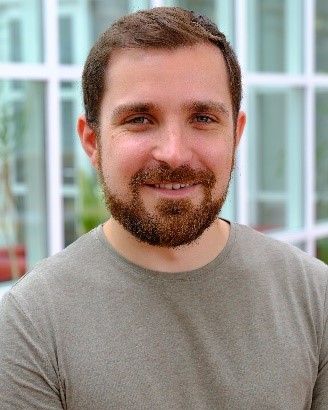
Florian Rathje
PhD student since October 01, 2019
Nationality: Austria
Web: https://www.plus.ac.at?page_id=10224
Supervisor/secondary supervisor: Prof. Fritz Aberger and Prof. Jutta Horejs-Hoeck
Research interest: Tumor Immunology and Disease Models
Orcid: https://orcid.org/0000-0001-5386-3545
Title of thesis: Analysis of Histone Deacetylase Inhibitors in Immunogenic Colorectal Cancer Organoids
My project At the start of the project we wanted to investigate the effect of HDAC inhibitors on immune checkpoint blockade agents in an in vitro disease model of colorectal cancer using immunogenic murine healthy colon and colon tumor organoids cocultured with specific cytotoxic T lymphocytes. In addition to that we began to examine the effects of other epigenetic modulators in a simplified in vitro coculture model using antigen-expressing colorectal cancer cell lines.
My background. I did my Bachelor’s degree in Molecular Biotechnology at the University of Applied Sciences FH Campus Wien in 2016 and then my Master’s degree in Medical Biology at the Paris Lodron Universität Salzburg in 2019. The Master’s thesis was about implementing and applying CRISPR/Cas9 gene editing technology in our laboratory for disease modeling in the cancer field.
In my free time I enjoy making and exploring various pour-over coffees as well as playing board games or watching American football with friends.
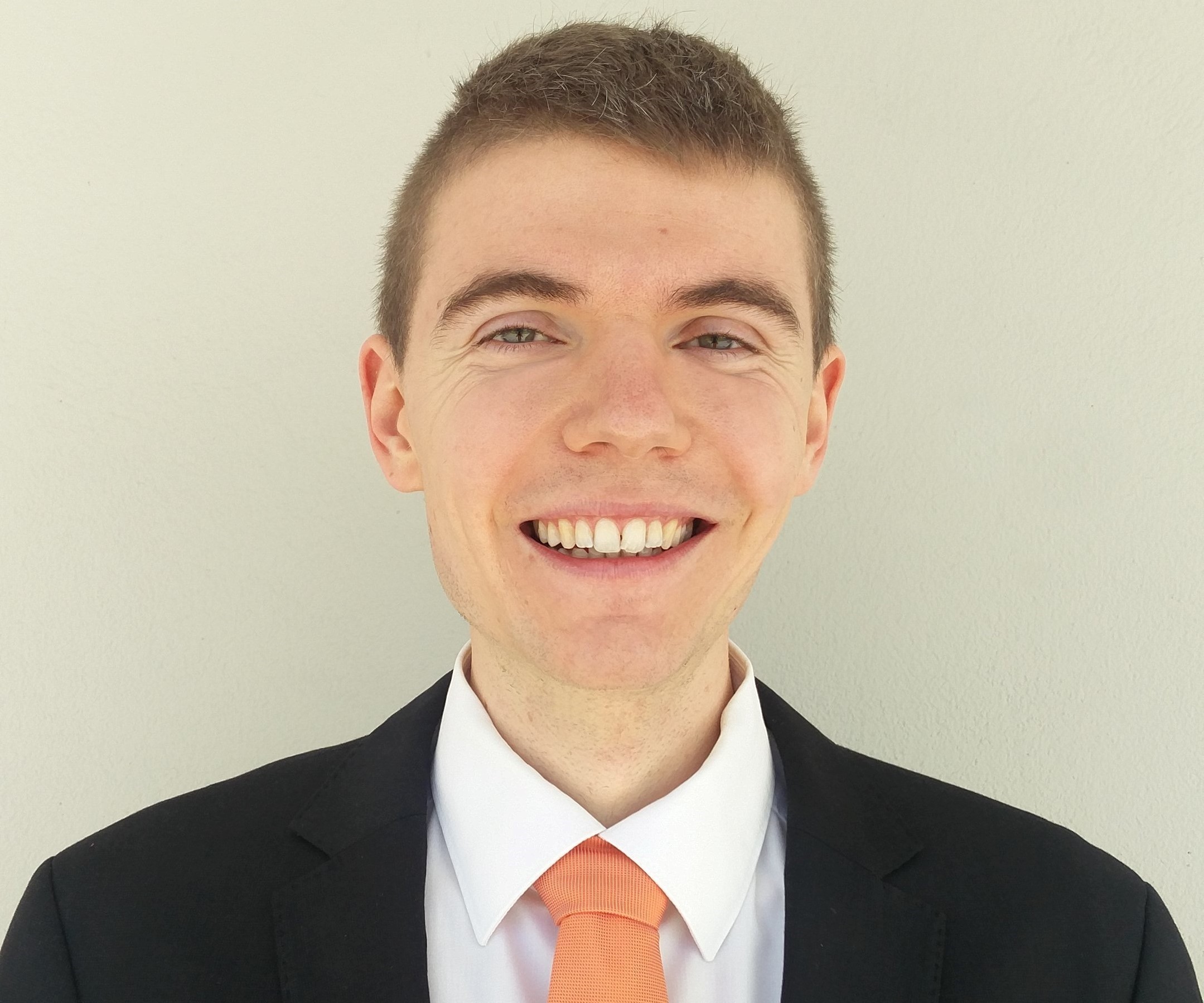
Thomas Rauter
PhD student since Februray 01, 2024
Nationality: Italian
Web: https://www.plus.ac.at?page_id=10321
Supervisor/secondary supervisor: Prof. Nikolaus Fortelny and Dr. Veronika Schäpertöns
Research interest: Biotechnology, CHO cells, -omics, interpretable deep learning
Orcid: https://orcid.org/0009-0004-5578-3628
Title of thesis: Determination of Enzyme and Metabolite Importance in cNISTmAb N-glycosylation Using Knowledge-Primed Neural Networks
My PhD project: Antibodies produced by Chinese Hamster Ovary (CHO) cells are a critical class of therapeutics in current medical applications and the glycosylation of these antibodies plays a critical role in determining their efficacy and safety. However, ensuring the correct antibody glycosylation during antibody production remains a major challenge. Developing an optimized process for that is resource-intensive and time-consuming, requiring extensive experimentation. Computational models that predict how process parameters influence the glycosylation have the potential to greatly streamline process optimization and development by providing insights that guide more targeted and efficient laboratory experiments. However, state-of-the-art models are limited as they either (i) provide mechanistic insights but require extensive work to adapt to new cell lines, products, or process conditions or (ii) are easily adaptable but lack interpretability in so-called ”black box models”. In my PhD, I will address these challenges and develop a model that is both adaptable and interpretable.
My background: I completed my Bachelor’s in Molecular Biology in Graz, followed by a Master’s in Biotechnology. Alongside my studies in biology, I developed a strong interest in computational methods, particularly machine learning. This passion led me to explore the field of bioinformatics, which became the focus of my Master’s thesis. I then moved to Salzburg to pursue a PhD in Bioinformatics, where I continue to integrate computational approaches with biological research.
Privately, I am interested in board games of all kind, reading books, playing video games, Karaoke, going on a hike or in the swimming pool in the summer.
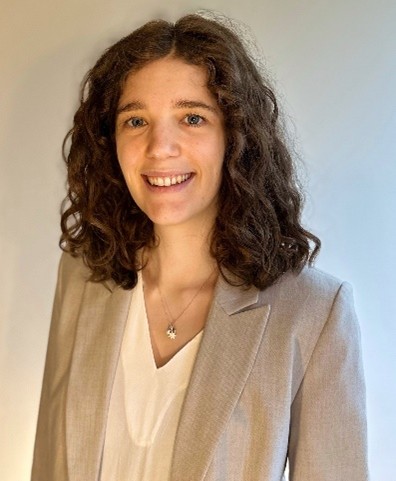
Johanna Rehrl
PhD student since February 2025
Austrian
Web: https://www.plus.ac.at?page_id=579914
Supervisor/secondary supervisor: Dr. Gabriele Gadermaier
Research interest: molecular allergology, science communication and citizen science
Orcid: https://orcid.org/0009-0002-2853-6539
Title of thesis: Identification of new biomarkers to improve type I allergy diagnosis through analysis of serum, nasal fluid and saliva
Describe your project My PhD project is part of the Sparkling Science project DIAG_NOSE, which focuses on improving allergy diagnosis by identifying new biomarkers in nasal fluid and saliva. I aim to analyze the allergen-specific binding of IgE, IgA, and IgG antibodies in the serum, nasal fluid and saliva of 100 school students using an allergen macroarray and inhibition and avidity ELISA. In addition, mass spectrometry will be used to identify further biomarkers capable of distinguishing clinically allergic, sensitized (asymptomatic) and non-allergic individuals. As a multidisciplinary project, DIAG_NOSE promotes participatory research by actively involving school students in the scientific process, thereby advancing allergy diagnosis and strengthening the acceptance of science and research.
Describe your background. I studied molecular biology at the Paris Lodron University Salzburg and Johannes Kepler University Linz. I completed my master’s degree in 2024 with a thesis at the University of Applied Sciences Salzburg, focusing on the antimicrobial, antioxidant, and wound-healing potential of Austrian tree bark extracts. In February 2025, I transitioned to a completely different and highly fascinating field: molecular allergology.
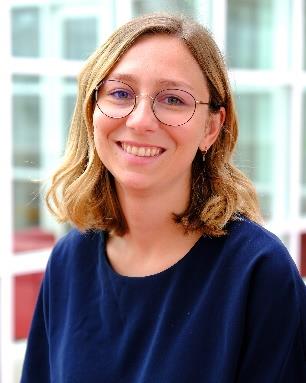
Leonie Schöftner
PhD student since October 2022
Nationality: Austrian
Web: https://www.plus.ac.at?page_id=10334
Supervisor/secondary supervisor: Prof. Iris Gratz and Dr. Giorgia Nasi
Title of thesis: The impact of the tumor micromilieu on gamma delta T cell function in aggressive squamous cell carcinoma in Epidermolysis bullosa.
My project: Epidermolysis Bullosa is a rare genetic skin disease in which minor mechanical damage can lead to skin blistering. Almost all patients who suffer from the severe subtype recessive dystrophic epidermolysis bullosa (RDEB) develop an extremely aggressive form of skin squamous cell carcinoma at the age of 30, which cannot be treated and is therefore the main cause of premature death in these patients. Gamma delta T cells are a subtype of cytotoxic immune cells that can in principle eradicate cancer cells. However, preliminary work suggests that cytotoxic cells are dysfunctional in RDEB patients. Thus, we will investigate the role of gamma delta T cells in EB skin cancer with the aim to reveal future therapeutic avenues against this highly aggressive skin cancer.
My background: I received my Bachelor’s degree in Molecular Biology from a joint program of the University of Salzburg and the Johannes Kepler University Linz, in 2020. In 2021, I completed my Master’s degree with honors in Medical Biology at the University of Salzburg. After graduation, I continued as lab manager in the research group of my master thesis and started my PhD at the PLUS in Oktober 2022.
Outside of work I am into gardening and crocheting.
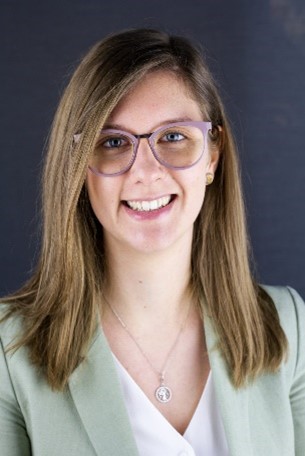
Helene Sieberer
PhD student since 2022
Nationality: Austrian
Web: https://www.plus.ac.at?page_id=14096
Supervisor/secondary supervisor: Prof. Jutta Horejs-Hoeck and Dr. Theresa Neuper
Research interest: Cancer and tumor immunology, Cellular signaling
Title of thesis: The NLRP3/eIF2 axis in acute myeloid leukemia
My project The NLRP3 inflammasome is an important entity of the innate immune system to fight against infections. However, it’s overexpression and dysregulation has been observed in several different cancers. Therefore, we are interested in the role of NLRP3 in acute myeloid leukemia (AML), a very aggressive subtype of blood cancer. We found that overexpression of NLRP3 correlates with poor survival of AML patients. Additionally, we observed that deletion of NLRP3 promotes eIF2-mediated apoptosis in vitro and reduces leukemic burden in vivo.
My background. I completed both my bachelor’s and master’s degree in molecular Biosciences, a joint program between the universities of Salzburg and Linz. Already in my bachelor studies I was interested in the basic principles of immunology and the ways in which cancer cells exploit signaling pathways for their own benefit. Therefore, I decided to join the working group of Jutta Horejs-Hoeck where I investigate the role of the NLRP3/eIF2 axis in AML, thereby combining both my interests in immunology and cancer signaling.
Besides work, I enjoy reading books and baking cakes.
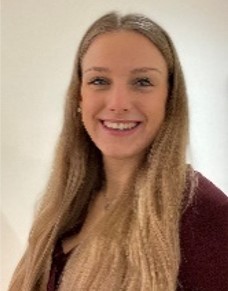
Victoria Stefan
PhD student since October 01, 2022
Nationality: Austrian
Supervisor/secondary supervisor: Prof. Barbara Kofler and Prof. Angela Risch
Research interest: Tumor- and Immunometabolism
Orcid: https://orcid.org/0009-0001-6388-3766
Title of thesis: Metabolic characterization and manipulation of neuroblastoma and its microenvironment upon a ketogenic diet
My project: My dissertation project aims to explore the potential of a ketogenic diet (KD) as an adjunct therapy in the treatment of neuroblastoma in preclinical models. We investigate how a KD might synergize with immunotherapy to enhance tumor regression by modifying metabolic pathways that influence tumor growth and immune response. By altering the tumor microenvironment, the KD may shift the balance between pro-tumor and anti-tumor immune cells, potentially enhancing immune surveillance and improving the effectiveness of immunotherapy.
My background. My scientific journey began in 2017 with a bachelor’s degree in Molecular Biosciences, a joint program between Paris Lodron University of Salzburg and Johannes Kepler University of Linz. In 2020, I moved to Innsbruck to pursue a master’s program in Molecular Medicine at the Medical University of Innsbruck, completing my studies in 2022 with a thesis on the role of CD8+ T cells in cerebral malaria. In 2020, I first had the opportunity to complete an internship in the laboratories of Prof. Kofler, and I was excited to rejoin the team in 2022 for my dissertation project. Here, I am able to further explore and apply my interests in oncology, immunology, and metabolism in the context of neuroblastoma.
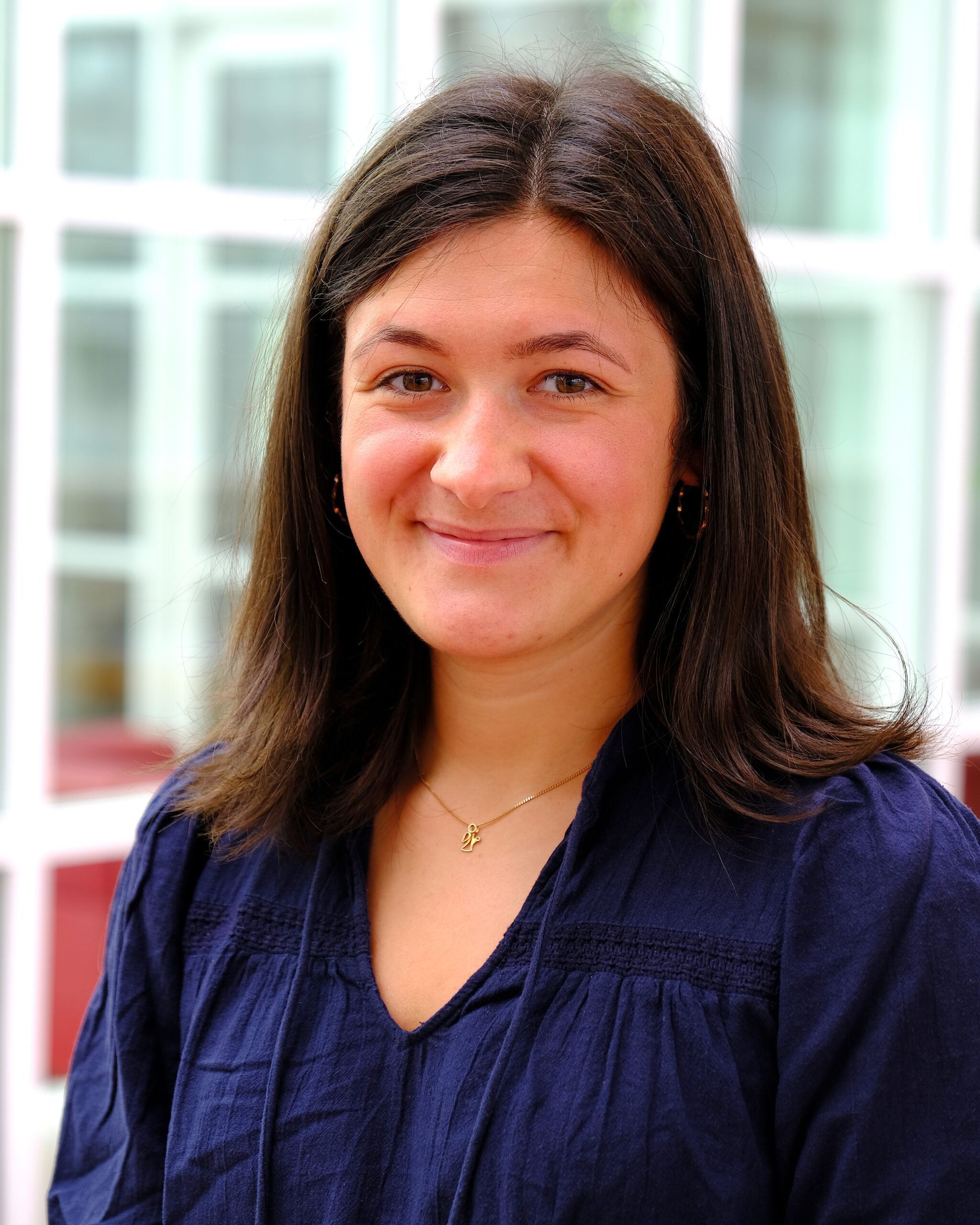
Maria Stigler
PhD student since May 2023
Nationality: Austrian
Web: https://www.plus.ac.at?page_id=10334
Supervisor/secondary supervisor: Prof. Iris Gratz and Prof. Nikolaus Fortelny
Research interest: Immunology
Orcid: https://orcid.org/0000-0002-8890-5271
Title of thesis: The role of HDAC1 in CD4+ T cell differentiation and tissue adaptation
My project Immune cells in the skin, such as CD4+ T cells, play a crucial role in mounting host-protective responses. Upon activation, T cells adopt distinct differentiation trajectories such as effector and memory T cells. Crucially, abnormal T-cell immunity can initiate and promote the pathogenesis of autoimmune diseases. Thus, CD4+ T cell differentiation and function are tightly controlled by various mechanisms, including histone deacetylases (HDACs). HDACs regulate the acetylation status of histones and non-histone proteins, influencing key processes such as gene transcription, protein-protein interactions, protein localization, and protein stability. Our research focuses on the role of HDAC1 in maintenance and plasticity of CD4+ T cells, particularly in the context of skin autoimmunity. Additionally, we aim to investigate how HDAC1 in CD4+ T cells affects downstream events in structural cells during T cell-mediated autoimmune inflammation.
My background. I studied biology at the Paris-Lodron University in Salzburg and completed my studies with a master’s thesis in the group of Fatima Ferreira-Briza working on antigen-presenting bioparticles for the immunotherapy of allergies in 2022. I continued working as a technician in the same group and in spring 2023, I decided to persue a PhD degree in the field of skin autoimmunity.
In my personal time, I enjoy outdoor activities such as cycling, running, and spending time in nature. Besides that, I have an interest in needlework, including knitting and crocheting, which allow me to work on creative projects.
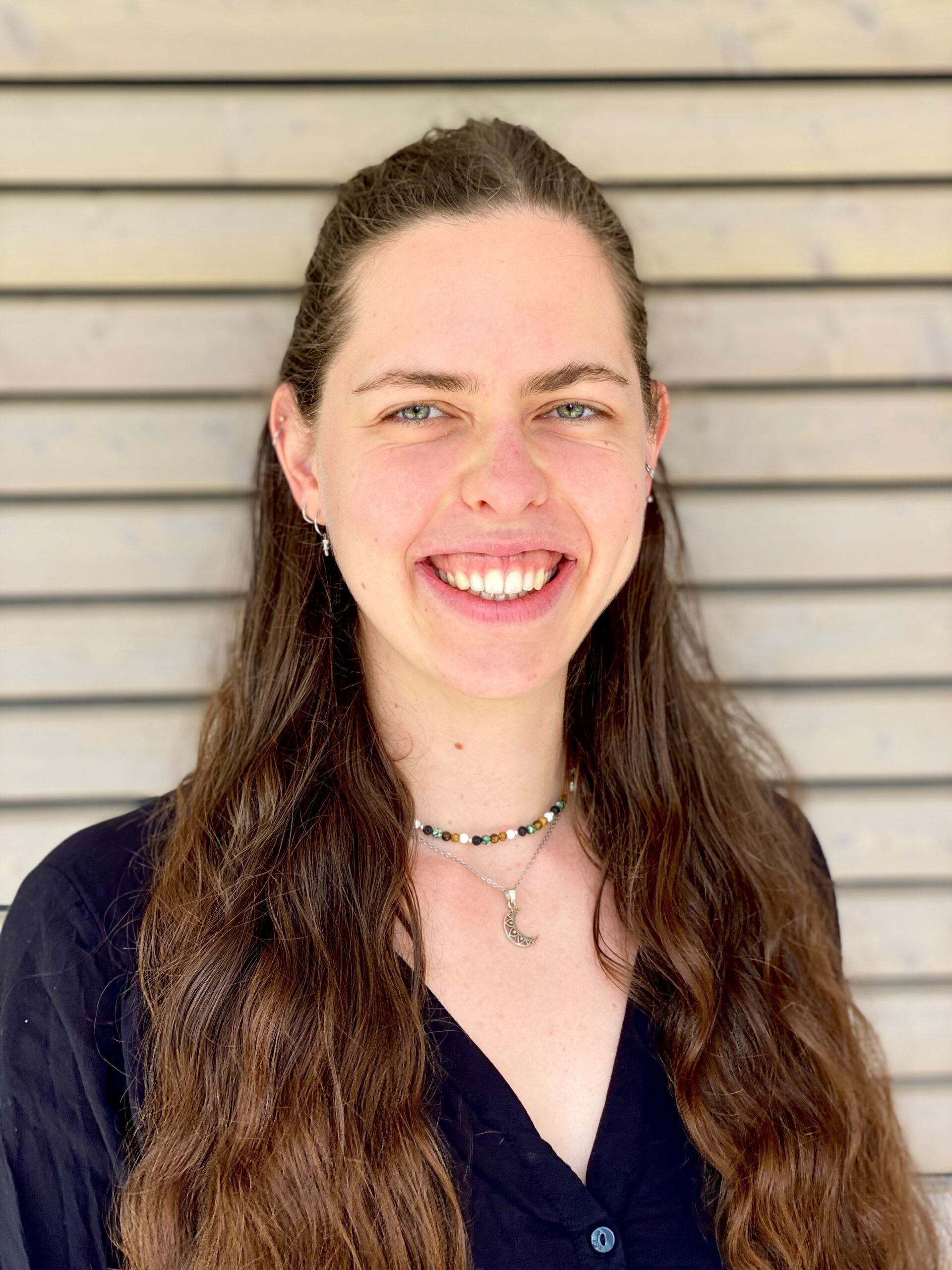
Lisa Trattner
PhD student since October 01, 2024
Nationality: Austrian
Web: https://www.plus.ac.at?lang=en&page_id=10225
Supervisor/secondary supervisor: Prof. Fritz Aberger, Prof. Richard Moriggl and Dr. Peter Krenn
Research interest: colorectal cancer, hedgehog signaling, cellular senescence
Orcid: https://orcid.org/0009-0003-2372-5848
Title of thesis: Hedgehog signaling and cellular senescence in colorectal cancer
My project. Colorectal cancer (CRC) progression relies on tumorigenic stem cells and their impact on the tumor microenvironment, including the induction of stromal cell senescence. Senescent stromal cells contribute to a pro-tumorigenic niche through altered signaling pathways. We aim to uncover how CRC shapes stromal senescence, focusing on the role of hedgehog-GLI signaling in these interactions. Using colon organoid co-cultures, we investigate the mechanisms of cell communication driving these processes.
My background. I studied Molecular Biology at the University of Vienna and conducted my master’s thesis project at the Karolinska Institute in Sweden. I then worked for three years as a research fellow at the EB House Austria, before starting my PhD.
Outside the lab I enjoy spending time in nature, especially in the mountains, and being a musician.
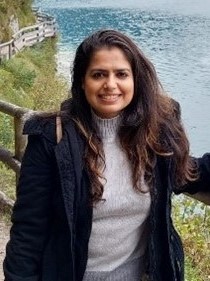
Saruchi Wadhwa
PhD student since May 01, 2022
Nationality: Indian
Web: https://www.plus.ac.at/wessler
Supervisor/secondary supervisor: Prof. Silja Wessler and Dr. Gernot Posselt
Research interest: Infection Biology
Orcid: https://orcid.org/0009-0000-1877-0618
Title of thesis: Investigating CagA functions in Helicobacter pylori infected immune cells
Describe your project: The aim of my project is to investigate CagA function in H. pylori-infected immune cells. CagA translocation, followed by tyrosine phosphorylation by host non-receptor kinases, is a specific event that is known to occur in infected immune cells and has only been little studied to date. My study involves the investigation of translocated CagA and its functional consequences on immune cell responses.
Describe your background: I completed my Bachelor’s degree in Microbiology from the University of Delhi, India, in 2015. Subsequently, I pursued a Master’s degree in Biomedical Sciences from University of Delhi. For my Master’s thesis, I conducted research at the Institute of Genomics and Integrative Biology (CSIR-IGIB), where I focused on characterizing a novel mutation in the PRKG2 gene associated with Acromesomelic Skeletal Dysplasia. Following my Master’s, I worked as a Research Fellow at the Translational Health Science and Technology Institute (THSTI) in India. During this role, I investigated the role of type II toxin-antitoxin systems in Mycobacterium tuberculosis persistence, contributing to the understanding of bacterial survival mechanisms in chronic infections.
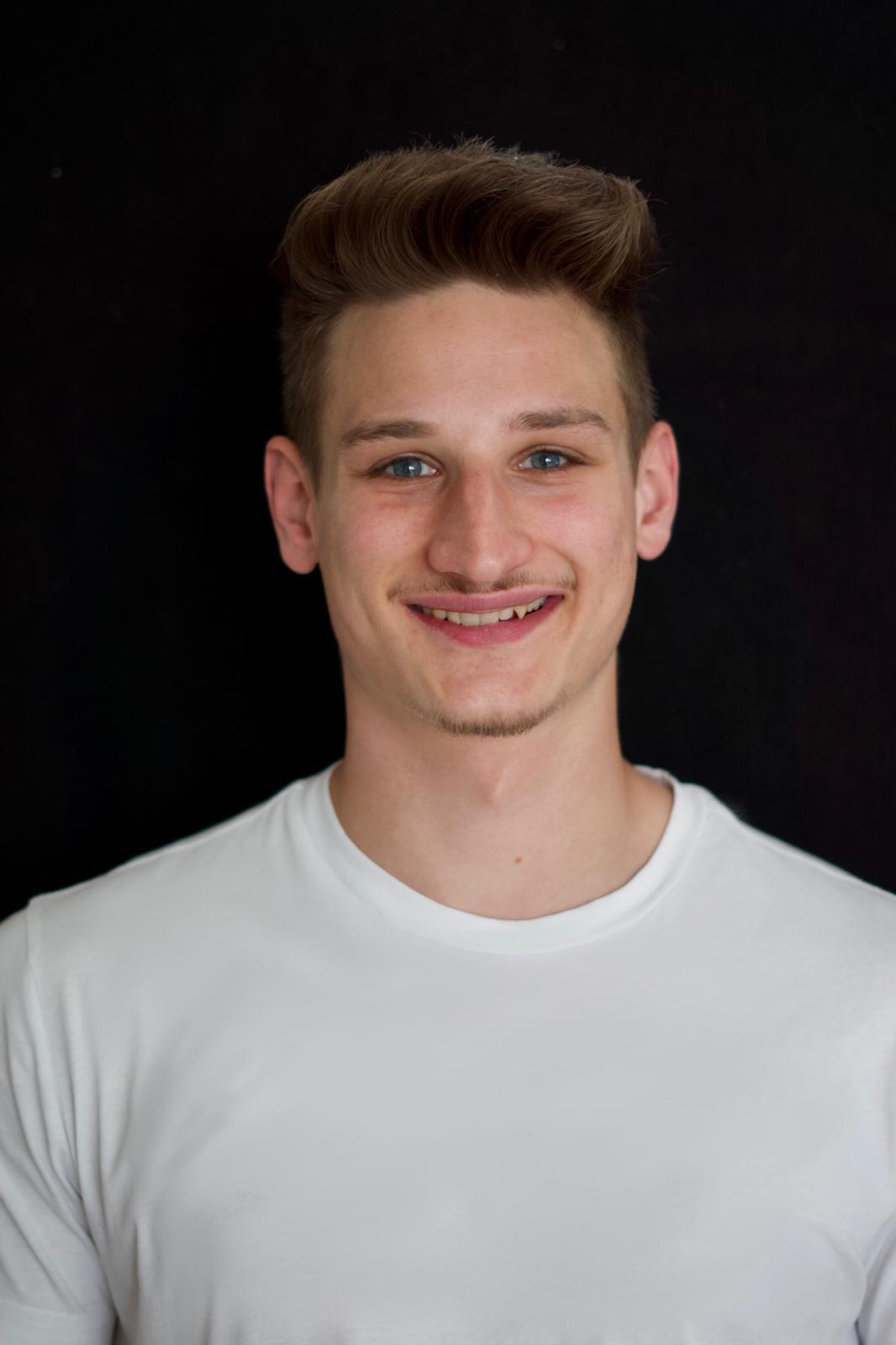
Paul Wätzig
PhD student since January 01, 2025
Nationality: German
Web: https://www.plus.ac.at/wessler
Supervisor/secondary supervisor: Prof. Silja Wessler and Prof. Richard Moriggl
Research interest: Cancer Signaling, Host Pathogen Interactions, Microbiome, H. pylori and F. nucleatum contribution to gastric and colorectal carcinogenesis
Orcid: https://orcid.org/0009-0004-2518-486X
Title of thesis:Identification of key cancer-drivers in response to persistent Helicobacter pylori or Fusobacterium nucleatum infections
Describe your project: In my thesis, I am developing a persistent, physiologically relevant co-culture model for oxygen-restrictive pathogens such as Helicobacter pylori and Fusobacterium nucleatum with gastric and colorectal cancer models using advanced organoid technology. By uncovering key host signaling responses to chronic infection, I aim to identify novel therapeutic vulnerabilities and bacterial effectors that contribute to cancer initiation and progression.
Describe your background: I received my B.Eng. in 2016 from the Munich University of Applied Sciences, completing my thesis at the German Heart Centre Munich on fibroblast reprogramming. I went on to earn an M.Sc. in Molecular Biotechnology from the Technical University of Munich in 2024, including an internship at Roche Penzberg and a semester abroad at the University of Lisbon. For my master thesis at TranslaTUM, I focused on validating a CasRx-based lncRNA screening platform. Since 2025, I have been a member of Silja Weßler’s group, where I develop organoid-based infection models for carcinogenic pathogens. When I am not in the lab curing cancer, I am enjoying Austrias beautiful nature either on the bike, in hiking shoes or on skies. Also, I am a huge football and tennis fan (always up for a match!!)

